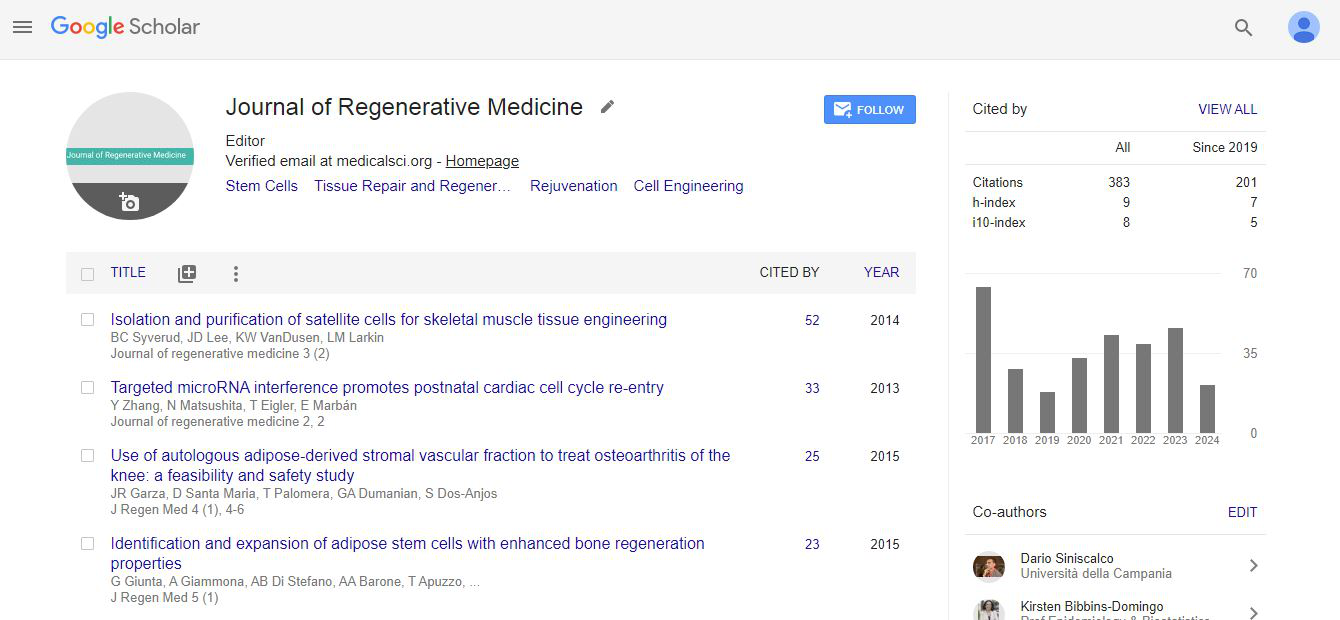Research Article, J Regen Med Vol: 1 Issue: 1
Human Stem Cell Derivatives Retain More Open Epigenomic Landscape When Derived from Pluripotent Cells than from Tissues
| Xuejun H. Parsons1,2* | |
| 1San Diego Regenerative Medicine Institute, San Diego, USA | |
| 2Xcelthera, San Diego, USA | |
| Corresponding author : Xuejun H. Parsons San Diego Regenerative Medicine Institute, San Diego, CA 92109, USA Tel: 858-274-1621 E-mail: parsons@SDRMI.org |
|
| Received: October 31, 2012 Accepted: January 22, 2013 Published: January 25, 2013 | |
| Citation: Parsons XH (2012) Human Stem Cell Derivatives Retain More Open Epigenomic Landscape When Derived from Pluripotent Cells than from Tissues. J Regen Med 1:2. doi:10.4172/2325-9620.1000103 |
Abstract
Human Stem Cell Derivatives Retain More Open Epigenomic Landscape When Derived from Pluripotent Cells than from Tissues
The ability of a stem cell both to self-renew and differentiate into desired phenotypes makes it a potentially inexhaustible cell source for tissue and functional restoration. Discerning the complex identities of human stem cell derivatives from various developmental stages and sources is essential for selection of an optimally lineage-committed human stem cell with sufficient plasticity along the fate restriction continuum to address a particular disease.
